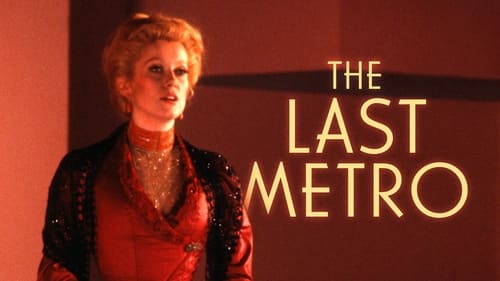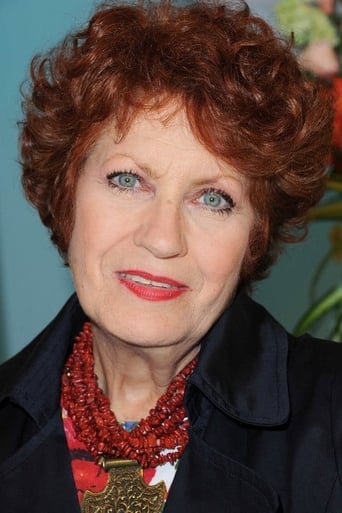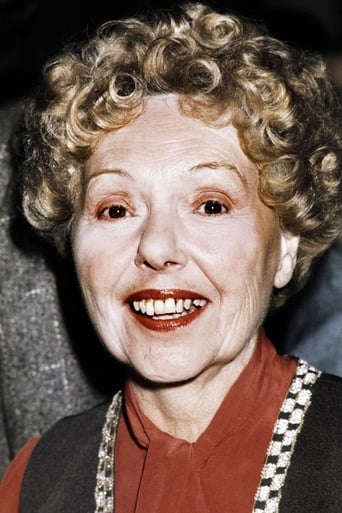2hotFeature
one of my absolute favorites!
ReaderKenka
Let's be realistic.
Mathilde the Guild
Although I seem to have had higher expectations than I thought, the movie is super entertaining.
Billy Ollie
Through painfully honest and emotional moments, the movie becomes irresistibly relatable
manendra-lodhi
The film starts with a lot of characters at once but then after some time you start understanding the flow of the story and start praising the storyline. Truffaut is a master in keeping the audience engaged. The story is about a director who is a Jew and because of a law, he has to hide in the basement of a theater which is now run by his wife. The focusing part of the story is how slowly his wife starts to get attracted to a new actor, but the story doesn't concentrate entirely on this buildup of emotions. It gives the audience a variety of characters. The film is not like where the husband is jealous and the wife herself is behaving in a very controlled way. However the start of the film looked to be a little bit confusing but gradually you are pulled into the film. Cinematography and all other aspects too were nice.MESSAGE: 'You have no control over some things.'VERDICT: "A recommended watch."
jotix100
Even though we are led to believe the film is about the insanity of what Paris was experiencing during the dark days of the German invasion during WWII, in reality is is a work about survival in what these characters we are presented loved most, their beloved theater, now going through hard times because of what was going on all around them.Marion Steiner, a star on her own, has to manage the theater founded by her husband Lucas Steiner, when he flees the country. Being a Jew, he runs a risk of being sent to one of the concentration camps where most of them would die. By pretending he has left to South America, Marion and Lucas' assistant Jean-Loup are presenting a new Norwegian play that would have been Lucas' last directorial venture. The title of the piece, "Disappearance" was in reality written by Steiner and it has a hidden meaning that is only known to his wife.The young Bernard Granger, an actor that was last seen at the Grand Guignol, is engaged to play opposite Marion. Earlier, Bernard has tried to hit on Arlette, whom unknown to him, is the costume designer for the play. Bernard is not aware, or naive not to realize Arlette is a lesbian who cares much more for the ingenue of the piece, Nadine. The company enters the rehearsal period led by Jean-Loup. What no one suspects is that Lucas Steiner is living in the basement of the theater, where Marion goes on a nightly basis for guidance as to how the work progresses as well as for having normal marital relations and to tend for Lucas. The director figures a way where he will be able to follow all what goes on on stage by listening through an air vent that tells him what works and what must be changed.A anti-Semitic critic Daxiat, suspects something is not quite what he sees as he comes, from time to time, to watch what Marion Steiner is doing with the play. Jean-Loup tries to play both ways and tries to be on Daxiat's esteem so the play can get its due. The critic, though, has other ideas, which come clashing with what Marion is trying to do. He even hints that Lucas Steiner is still in France for there is no record of his departure.As the play begins, Bernard realizes he has feelings for Marion, something she clearly rejects. Marion does not encourage the young actor to be anything else, but her co-star. One gets the current between them as they continue to work together. Will what Bernard feels for Marion be returned? What with Lucas Steiner so close? The ending is a bit of a disappointment, and somewhat contrived.Francois Truffaut set his story during WWII, but it actually does not touch too deeply into the conflict itself. It is more about keeping the facade in the way the play is, rather than the menace from the invaders of France. It is a film within a film, a tribute perhaps to the resiliency of those performers that carried out entertaining the people that flocked the theaters, perhaps to keep themselves warm and sane. Truffaut was working with his usual collaborator, Suzanne Schiffman. Nestor Almendros photographed the production which is seen mainly in interior shots done in a studio and special set in an abandoned chocolate factory.Catherine Deneuve plays Marion Steiner with her usual reserve. Gerard Depardieu has some good moments with his Bernard. Andrea Ferreol's Arlette is perfect. Jean Poiret is seen as Jean-Loup, and Heinz Bennent plays Lucas Steiner.
lastliberal
François Truffaut's homage to the theater was an Oscar and Golden Globe nominee and won a basketful of César Awards. It takes place in Nazi occupied Paris in 1942 and shows how the French coped with that tragedy. The anti-Jewish propaganda is continual throughout.Catherine Deneuve is magnificent as the wife of a theater owner (Heinz Bennent), who now runs it while keeping her Jewish husband hidden in the basement.Gérard Depardieu is her new leading man. He is stunningly suave and comedic as a womanizer, who also happens to be part of the Resistance. His repartee with Arnette (Andréa Ferréol) is hilarious.Bennent was excellent as the husband and director in the basement. Seeing him just before the play opened was just as I imagine it is for all directors.The music and cinematography were excellent also, and Truffaut's direction was flawless.A superb ending!
blanche-2
Set in occupied Paris, 1980's "The Last Metro" is about a theater trying to survive in wartime Paris. Lucas Steiner, the German manager and director of the theater, is said to have fled Paris and left his beautiful movie star wife (Deneuve) to run the place in his absence. What no one knows is that Steiner never left - he's hiding in the basement of the theater until Marion can arrange a safe passage for him to the free zone.Marion is unable to hire Jews in her theater and unbeknownst to her hires a very political man, Bernard Granger (Depardieu) as her leading man. The two fall for one another, but Marion doesn't act on her feelings because of her husband. Marion must put up with the anti-Semite critic Daxiat (Jean-Louis Richard), and when Bernard comes down on him for an insulting review, Marion is afraid the theater will be closed and washes her hands of him.This is a film about people living in trying times and attempting to survive and do the work they love while danger lurks everywhere. The photography is beautiful, and the film is done with great style and captures the '40s atmosphere beautifully. Deneueve is breathtakingly beautiful, but all of the faces are so much more interesting than one finds in an American film. A captivating movie - I loved every minute of it.






